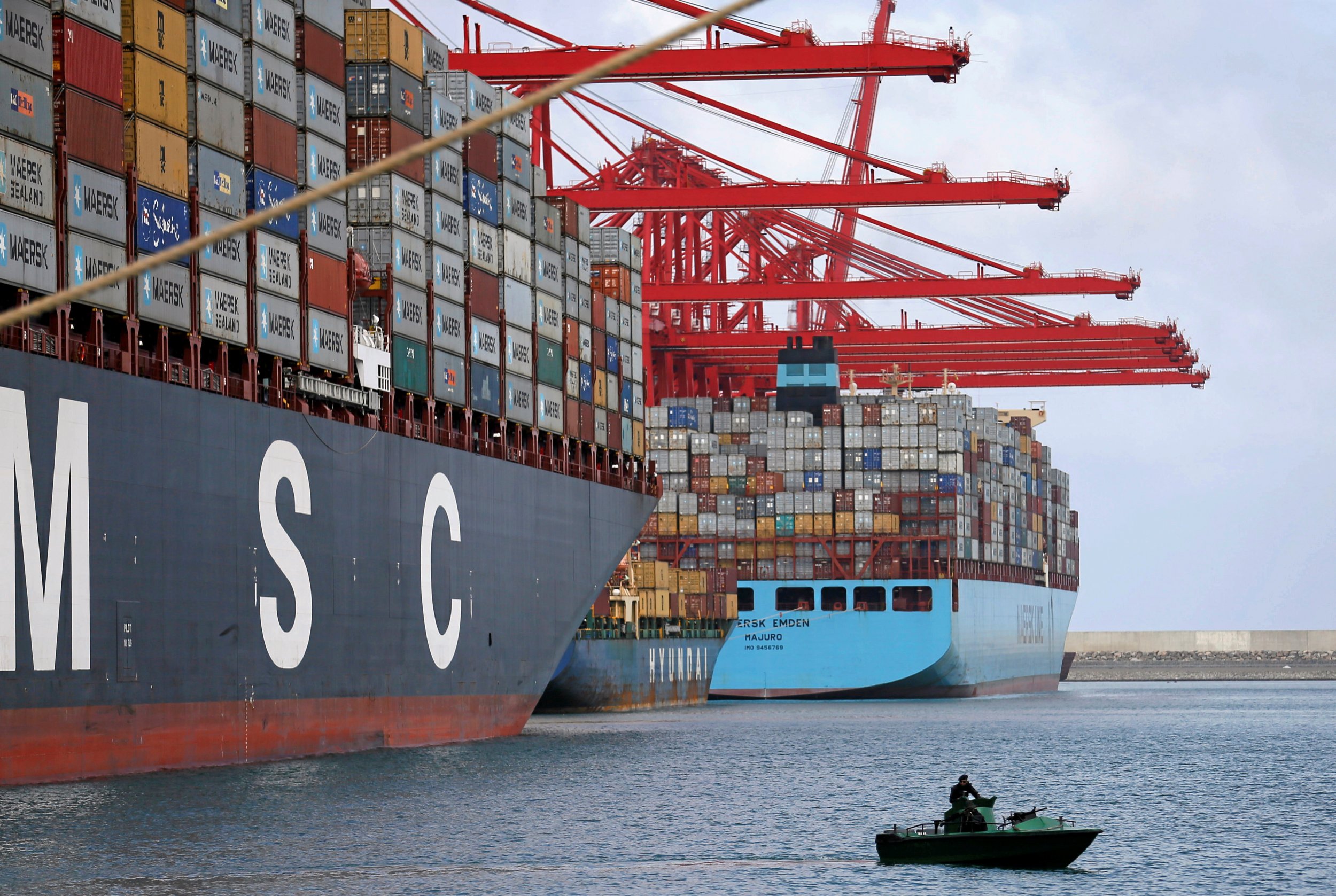
For America's presidential contenders, it's open season on free trade.
GOP nominee Donald Trump has repeatedly blasted "globalism" and trade policies he says move "our jobs, our wealth and our factories to Mexico and overseas."
Hillary Clinton, meanwhile, has slammed the Trans-Pacific Partnership, the 12-nation mega-agreement of Pacific Rim countries, arguing that it is financially crippling American business.
While not entirely devoid of reason, their positions present one-sided views of the free trade issue. Limiting the conversation about trade to supposed job losses ignores the most important benefit of free trade, one that flows directly to billions of people: world peace.
Trade agreements are powerful tools to prevent international conflict and foster collaboration among nations. Instead of blaming them for America's wavering job market, policymakers must embrace them as tools that stabilize and pacify international politics.
Free trade is a powerful peacekeeping force. The logic is simple: When a country's prosperity is dependent on trade with other nations, it is far less likely to get into wars that disrupt the flow of commerce. Instead, trading countries often opt for more peaceful methods of dispute settlement.
The pacifying effect of increased trade is something philosophers like Immanuel Kant speculated about centuries ago. In our day, numerous empirical studies confirm the relationship.
A study at the University of Texas, for example, examined an extensive array of countries from 1960 to 2000. It concluded that higher tariffs and other barriers to free trade increased a country's chances of international conflict. Conversely, countries with fewer trade barriers were less likely to invade or be invaded.
Similarly, a Stanford University study found that from 1950 to 2000 war between countries was about one-10th that of the previous century. Unsurprisingly, global trade networks have grown almost fourfold since 1950. As the lead professor of the study, Matthew Jackson, put it, "Economic interest drives a lot of what goes on in terms of where nations are willing to exercise military strength."
For more proof, look to Europe. When the European economy was in a shambles after World War II, nations formed the European Coal and Steel Community to create a common market for those essential commodities.
Only part of the reason for doing so was economic, however. As the man who originally proposed the ECSC, French Foreign Minister Robert Schuman, clearly stated at the time, its purpose was to make war "not merely unthinkable, but materially impossible."
The six-member ECSC led directly to today's 28-member European Union, a remarkable model of how common economic interests can maintain peace. And despite the U.K.'s recent vote to leave the EU, the British government is wisely seeking to negotiate a trade deal that will keep goods and services moving freely.
The United States, which has free trade agreements with 20 countries, has experienced firsthand the diplomatic benefits of open trade policies and the international cooperation they foster.
The 2007 United States–Korea Free Trade Agreement, for example, not only significantly reduced tariffs on goods between America and South Korea but also strengthened their relationship on other key issues. Since signing the agreement, the two nations have worked together on a myriad of important projects—from climate change to nuclear disarmament.
America has also signed free trade agreements with Columbia, Jordan and Chile that include commitments to collaborate on labor and environmental issues.
The United States isn't even close to tapping the full potential of strategic trade partnerships. A good place to foster trade would be former Soviet states, where nations are eager to bolster their economic and political integration into the international community and reassert their economic self-determination.
Via a trade agreement with the EU, the Republic of Moldova has just pledged to reform its political systems to be more democratic and protective of human rights.
The Caucasus country of Georgia, with a strategic location that opens up an economic and energy gateway between Asia and the EU, is a perfect trading partner.
The nation knows all too well the calamities of war—and it has signed trade agreements with a number of its neighbors, from Turkey, Azerbaijan and Armenia to eight former Soviet states and the EU. Indeed, it recently ranked third out of 178 countries on its openness to trade. Heightened U.S.-Georgian trade would seriously stabilize the caucuses and pacify surrounding regions.
Free trade economically benefits countries, but its ability to benefit peace and global order is far more significant. U.S. leaders mustn't sell those diplomatic bonds short.
Paata Burchuladze is running to be the Republic of Georgia's next prime minister, as a member of the State for the People party. He has served as a U.N. ambassador of peace and a UNICEF goodwill ambassador.
Yuri Vanetik is Lincoln fellow at the Claremont Institute. He serves on the board of Gen Next and Gen Next Foundation.
Uncommon Knowledge
Newsweek is committed to challenging conventional wisdom and finding connections in the search for common ground.
Newsweek is committed to challenging conventional wisdom and finding connections in the search for common ground.
About the writer
To read how Newsweek uses AI as a newsroom tool, Click here.








